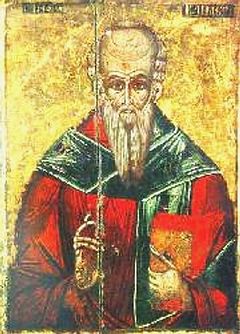NOTE:
This reflection paper is the fruit of our class discussion on the talk of Cardinal Vidal in the gathering of clergy in the Diocese of Malolos. The title of his talk is "The Spirituality of Stewardship." Our teacher in Pastoral Management, Fr. Rannielle Pineda, extended the good cardinal's talk to our class. Thank you Fr. Rannielle.
______________________________
I have been in the religious life for at least three
years already since my first profession in 2010. According to our Plan of
Augustinian Formation, the time of temporary religious profession is a vital
process. It is in this period that we are expected to take a more intimate part
in the community that shares faith, life and work, and in all that Augustinian
life implies. As we are being prepared
for our solemn profession, we are being exposed to the kind of life that we are
expected to do particularly our responsibilities as servants of Christ.
Hand-in-hand with our responsibilities, the dark side of religious life plays
also a salient role in our formation.
The
talk on the Spirituality of Stewardship shares a lot of positive insights
regarding the role of priests in stewardship. But, as seen in real life, a
number of bad experiences were given as examples. Even in the introduction of
the copy of the talk its first example is really negative. It is like out of a
bad experience we are trying to learn something good. I felt depressed, every
time I hear mischievous practices of priests. I am worried of the future that I
might do the same. Knowing my
weaknesses, it is really disturbing that I might do the same. Despite all the
things I’ve heard, I have to flip the other side of the coin. I should not be
worried of the uncertain future but rather to the certain present. The talk of
Cardinal Vidal showed me that aspect. He was not simply talking about
stewardship, but “good stewardship”.
It
is good that once in a while, talks like this remind us of our role as
consecrated religious. The three important points, Entrustment, Empowerment and
Espousal, regarding good stewardship shares also the same sentiment in my level
of formation at present. The three points seems to be directed to the three
objects of love namely, towards the self, towards others and towards God,
respectively. I want to share this in relation to my level of formation.





